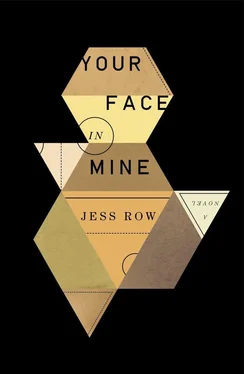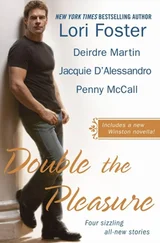But by lunchtime — sometimes as early as eleven — I can clock out, no longer required to maintain even the semblance of responsibility, and to avoid the dread of long afternoons in a silent apartment, I’ve taken to walking uptown and depositing myself, my laptop, and a stack of books at Century Coffee, a new place just across the broad avenue from the Johns Hopkins main gate. There have been days warm enough to sit outside on the patio, at least for an optimistic hour or two.
And what do I fill my mind with, these days, no longer required to fill out a single spreadsheet or calculate a budget, parse the latest policy change from CPB or come up with a new tack for the grant-giving fundocrats at the National Endowment for the Humanities? For the first hour I put on my headphones, silence the Internet, open the folder on my desktop labeled Transcripts , and click on the first file: 4/12/12 .
Sometimes, sometimes I wish I didn’t remember her, but I do. Just barely. She was incredibly pale, with that light, light blond hair, eyebrows, everything, and the one image I have of her is in the kitchen, this enormous kitchen, which had been the conservatory of the house before. She’s standing against the windows, her back to the windows, and it’s as if the sunlight is coming through her. I remember being terrified of that. And fascinated. In any case, there’s my one memory, and then she was off. Untraceable, unidentifiable, or so my father claimed. I have no record of her whatsoever, not even a picture. I used to beg him to tell me whether I had her nose, or her ears, anything, and he would say, sorry, but as far as I can tell, you’re all me. More’s the pity.
You’re the Alex Haley to my Malcolm X, Martin said the other day, with a hearty laugh, the Quincy Troupe to my Miles. Don’t tell anyone I said that, right?
What exactly does that mean, Martin?
What exactly does that mean? You’re my coauthor, not my ghostwriter. I want you to improvise. Create. Be a little bit of a mythmaker. Which doesn’t mean I’m asking you to lie. Be selective, but don’t lie. I don’t want to have to sit there while Oprah rips me a new one like that Million Little Pieces guy.
Sometimes I wish I didn’t remember my mother, but I do. She was very pale, with light blond hair and eyebrows, and the one image I have of her is in the kitchen of the commune where I grew up. She’s standing against the windows, her back to the windows, and it’s as if the sunlight is coming through
But that’s just cleaning up the transcription. An oral interview isn’t a story in itself.
My mother was the epitome of a white woman.
Ridiculous, and over the top.
I was an unwanted child.
What is this, Dickens? In frustration, I close the file, clicking Do not save , and start again.
I have two vivid memories of women from my early childhood. One is my mother, who disappeared when I was four. She was very pale, with light blond hair and eyebrows, and I remember her in the kitchen of the commune where I grew up. She’s standing against the windows, her back to the windows, and it’s as if the sunlight is coming through her. I was terrified and fascinated. The other is a young black woman who appeared one morning at the picnic table on the back patio, where we had meals in the summer. She wore a caftan, a bright orange-and-red print. She had an Afro. Lots of silver bangles on both arms. She must have been about thirty. I had no idea where she’d come from. I came out to ring the dinner bell — it was a big iron triangle, the kind they use on ranches — and I startled her, but then she looked over and saw me and smiled. She had been crying. There were tracks of tears on her cheeks. But when she saw me her mouth split into an enormous grin, the widest mouth, the friendliest mouth I had ever seen in my life. A slice of the sun. She laughed, and she said, where did you come from? I wanted to run to her. Hell, maybe I still am running to her.
Transcribing again. I can hear Martin, perched on my shoulder: I’m not asking you to take dictation.
But you’re a natural storyteller. And you’ve done this before. Any story improves with practice.
I’m asking you to package me. I want the PG version. Do it this way and you’re just asking people to psychoanalyze me. Lose the stuff about my mother, keep the part about Shirley O’Dell. Streamline. Say I have no memory of my mother. Make it easy on yourself. “The first woman I remember in my life was…”
People won’t psychoanalyze you for idealizing a black woman?
It’s simple cause and effect. It’s imprinting.
You don’t want to be seen as running away from whiteness, as choosing between whiteness and blackness? Is that offensive, or something?
It’s complicated.
And what you’re asking is for me to not make this complicated ?
—
This time I hit Save , close my laptop, and leave it out for all to see as I head to the bathroom. Half wishing someone will steal it and put me out of my misery. When I return and find it still there, a mute clam, I switch the music in my iPod to Arvo Pärt’s Tabula Rasa , prop my feet on the chair across from me, and close my eyes, hoping the shimmering violins can dissolve my misgivings. Trying to forget I’m in Baltimore at all.
Every month or so when I was in college I used to flee to Northampton — or if I was lucky, Boston, or once in a very long while, New York — and spend most of a weekend drinking coffee somewhere, preferably at a table by the window, listening to my portable CD player and reading unassigned books. That was what I imagined adulthood would be like: a man drinking coffee by a window on a city street, an anonymous citizen, lightly employed, a cosmopolite of the world of the tactful and restrained. A world full of acquaintances, in which anyone might show up at any time. In the Nineties it was possible to believe you could go on living that way forever. Like now, I’m thinking, opening my eyes, this very moment, that woman over there leaning over the bar to retrieve an extra stirrer for her coffee looks just like Rina, my girlfriend all through junior year at Willow, her rust-colored hair held back in the same short ponytail, even the same three hoops in her right ear, but it couldn’t be, of course, Rina lives somewhere in California, and then Rina turns and sees me and stops short, spilling the foam of her latté down her shirt.
—
And here you are, she says, when she’s deposited her shoulder bag and half-empty cup at my table, and dried herself off, as best she can, in the bathroom, here you are, acting as if you have every right to be in Baltimore. I sent an email around to everyone I still know from Willow when I moved back here.
When was that?
Last September. Listen, have you seen anybody? Does anybody still know you’re alive?
I pulled up my stakes in Baltimore a long time ago. I’d be embarrassed, frankly. It would be like starting over.
That’s ridiculous, she says, and scratches herself between the eyebrows. A gesture I remember, and yet never would have recalled in her absence. It’s shocking how little she seems to have changed. Her face is a little longer, thinner; she’s wider at the hips, more freckled, her teeth duller. She had perfect, luminous teeth; in the period of a few weeks when I couldn’t stop staring at her, as if needing to be always reminded, I was fascinated by them, as much as by her tiny nipples, the size and color of pennies. She selected me, in ninth grade, literally grabbed my hand, at a party, and leaned against me, until I let my hands fall around her waist, and kissed me hard on the mouth. We dated, if you can call it that, for three months; then she went off to camp, had a fling with a counselor, and broke up with me by postcard. A mistake, she admitted later, but I never trusted her enough to try again, and we remained wary friends ever after, until our separate adulthoods swallowed us up.
Читать дальше












